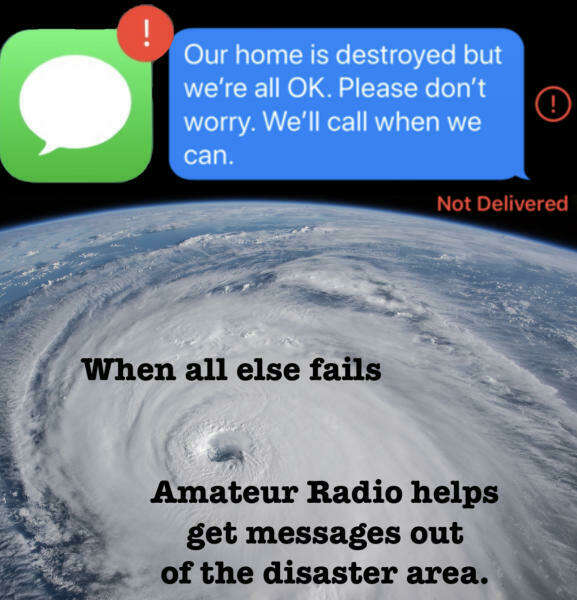
Plan Now To Communicate During Disasters
This is a friendly reminder that once the disaster begins the time to prepare ends. There are many things that should be done to prepare before disaster strikes and it helps to carefully plan for the scenarios that are most likely to impact your health and welfare. Creating your family emergency communication plan is an important part of your preparedness planning and should not be overlooked.
The US Department of Homeland Security offers great planning advice at ready.gov/plan including the following tips about communications:
| Your communication plan starts with one simple question: "What if?" "What if something happens and I'm not with my family?" "Will I be able to reach them?" "How will I know they are safe?" "How can I let them know I'm OK?" During a disaster, you will need to send and receive information from your family. Communication networks, such as mobile phones and computers, could be unreliable during disasters, and electricity could be disrupted. Planning in advance will help ensure that all the members of your household—including children and people with disabilities and others with access and functional needs, as well as outside caregivers—know how to reach each other and where to meet up in an emergency. Planning starts with three easy steps: 1. COLLECT. Create a paper copy of the contact information for your family and other important people/offces, such as medical facilities, doctors, schools, or service providers. 2. SHARE. Make sure everyone carries a copy in his or her backpack, purse, or wallet. If you complete your Family Emergency Communication Plan online at ready.gov/make-a-plan, you can print it onto a wallet-sized card. You should also post a copy in a central location in your home, such as your refrigerator or family bulletin board. 3. PRACTICE. Have regular household meetings to review and practice your plan. |
In addition to this great advice from the US DHS, I recommend that you familiarize yourself with the Amateur Radio Service. Below are some basic things you can do now to prepare to take advantage of ham operators if you ever need help communicating.
- Make sure that you have a current address and phone number for all friends and family that you would want to contact if disaster strikes;
- Designate family members or friends in another states who will act as a relay to contact your loved ones on your behalf and let them know about your health and welfare in case you are not able to contact them all yourself;
- Make sure that your designated relay people have the names, emails and phone numbers of everybody who will want to know your status;
- Use mapping tools on the web to search for Amateur Radio operators near you. Take special notice of the operators that have General Class or Extra Class licensees, because they are more likely to have the equipment, skills and privileges required to communicate over longer distances.